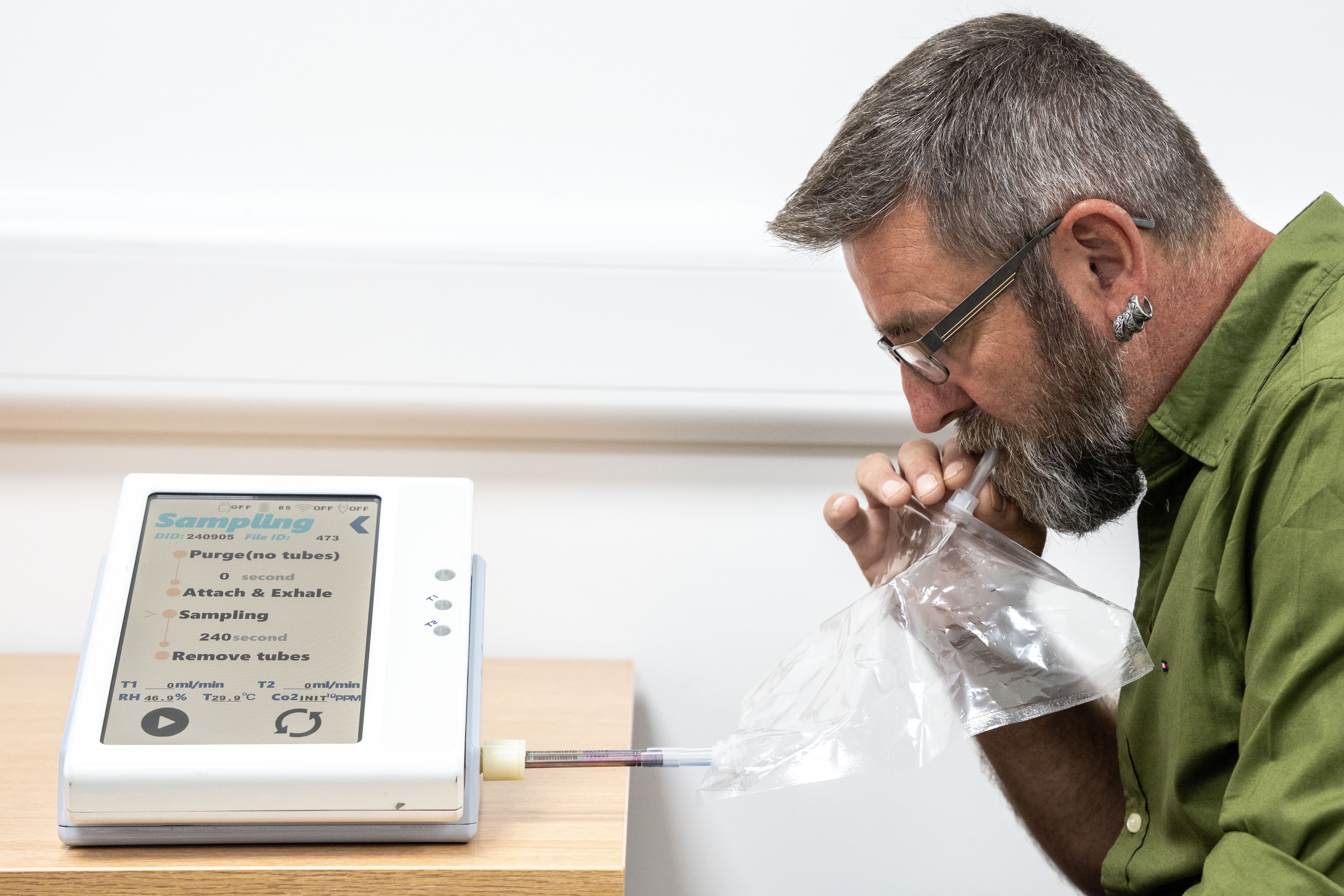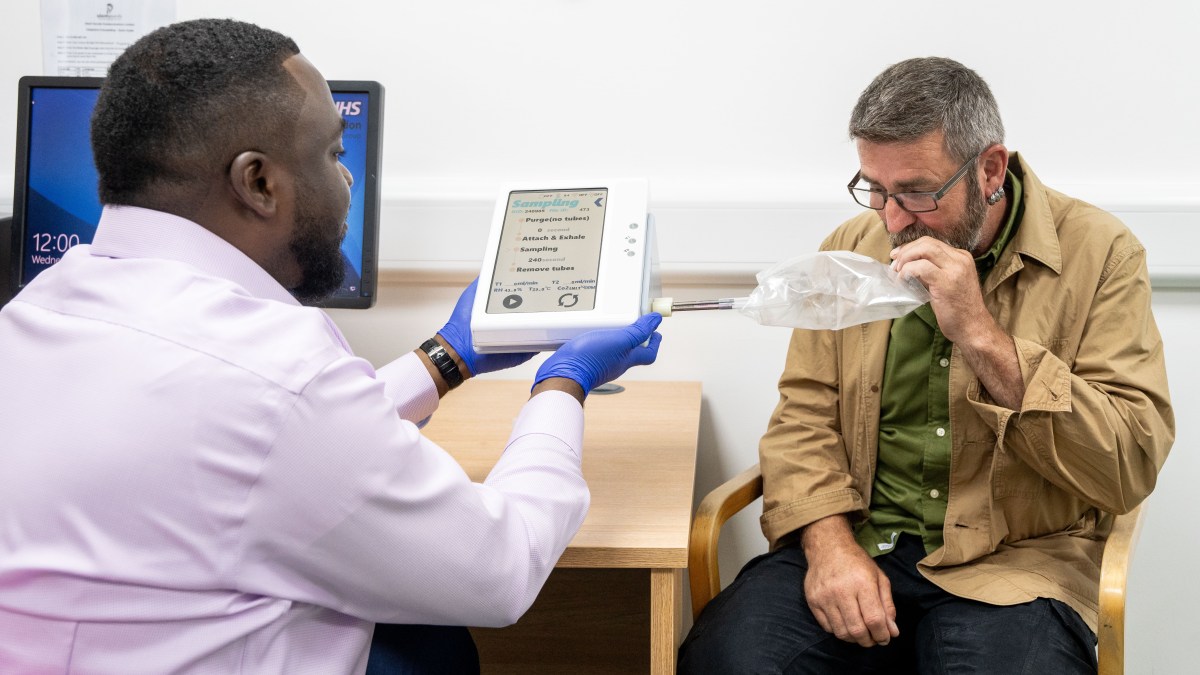A breath test for pancreatic cancer, which is often diagnosed at a very late stage, is being trialled by the NHS amid hopes that it could revolutionise treatment.
Pancreatic Cancer UK, which is funding the research, said that the trial was the “most significant step toward a lifesaving breakthrough in 50 years”.
In England, 62 per cent of pancreatic cancer patients in England are diagnosed at stage four, where the cancer has spread to another organ, according to a recent audit. Survival rates are also extremely poor, as 22 per cent of patients do not survive for 30 days after diagnosis in England.
• Quest for cancer ‘super-survivors’ seeks clues to beating the odds
Diana Jupp, the chief executive of Pancreatic Cancer UK, said: “The breath test has the potential to revolutionise the early detection of pancreatic cancer. While more years of development are still needed before we can put this exciting new technology into the hands of GPs across the country, thousands of patients with an unknown diagnosis will now help refine it in the real world.
“This is the first pancreatic cancer breath test to ever reach a national clinical trial of this scale. That in itself makes this a moment of real, tangible hope. For decades the deadliest common cancer has been seen as too great a challenge to solve, but we are determined to keep pushing the boundaries of what’s thought possible.”
Results will be studied by scientists at Imperial College London, who will use the test on 6,000 patients with an unknown diagnosis at 40 locations in England, Wales and Scotland. If the trial is effective, the test could be available in GPs’ surgeries in as little as five years.
The test works by detecting a combination of volatile organic compounds present in the breath. Unique combinations of these compounds are present in the earliest stages of the disease.

Pancreatic cancer is often caught late because early symptoms are vague. They include indigestion and back pain, meaning the cancer is often not caught until it has spread to other areas of the body.
Professor George Hanna, head of the Department of Surgery and Cancer at Imperial College London, who is leading the project, said: “If our findings from the initial phase of the breath test study can be validated in a population of patients with an unknown diagnosis, it has huge potential to influence clinical practice and pancreatic cancer referral pathways.
“The funding announced today means we can now move quickly to that patient validation study stage, which is a very exciting next step for us. We look forward to seeing how the test performs in this group of patients with suspected cancer.”

